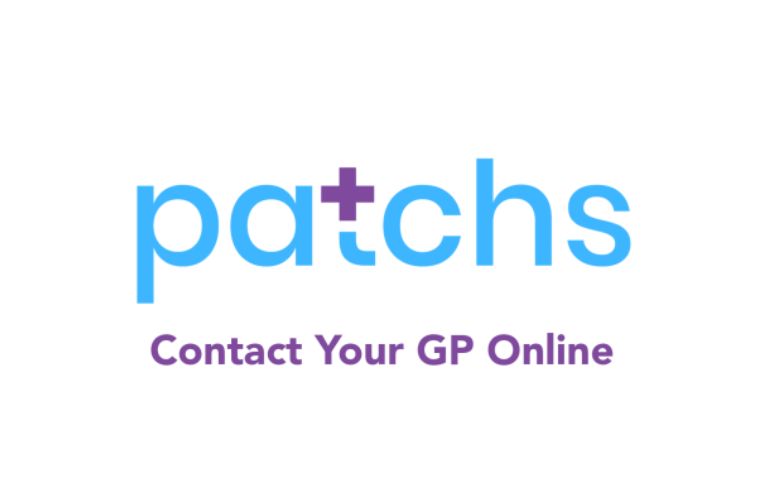A Message from Middlewood – how PATCHS works

“Everyone is aware the NHS is struggling… clinicians and patients alike find the current situation abhorrent…none of us asked for it, none of us want it… if we all offer each other mutual support, understanding and compassion we’ll come out the other side...”
Middlewood Update 25th October 2022
We very much understand the current situation with NHS services is extremely challenging for everyone. Please find below some further information on how we are attempting to manage the crisis…
We fully appreciate that some patients have found the introduction to PATCHS frustrating. Thank you for persevering. We want to explain to you a bit more about how PATCHs will be working to help explain the challenges that together, we are all facing. We also want to share with you the important balance that we have to get in order to ensure safe clinical services, as well as ensuring the well-being of our staff.
PATCHS is essentially a CONSULTATION tool. As soon as a patient enters a “Patch” it is the first part of an electronic consultation with the GP (or another clinician if it is deemed more appropriate). Even if it then moves to a telephone or face-to-face appointment, we all accept that from the moment a Patch is created and sent to the practice, a consultation has begun (and needs to be triaged, allocated and completed).
GPs only have a limited amount of time to undertake online consultations. Therefore, we can only accept the number of Patchs that match the GP time available to do the online consultations. If we increase the number of Patchs (online consultations) we accept, we will have to reduce the number of face-to-face and telephone appointments we offer. This disproportionately discriminates against those patients who cannot consult online. Given that our most vulnerable group of patients are unable to use online consultations, we must reserve time in each of our daily schedules to meet their needs in person and on the phone.
Practice staff and GPs currently work very long and intense days – often well in excess of 12 hours engaged in multiple different clinical activities. How much time we dedicate to each of the many responsibilities is carefully modelled and considered. Bear in mind that EVERY GP on each day they consult are doing the following work:
- Face-to-face appointments (for new, urgent and follow-up, including medication/annual reviews)
- Telephone appointments and advice
- Online appointments and advice
- Signing prescriptions
- Visiting patients in need of end of life care or needing a GP (as opposed to a paramedic)
- Completing personal administration including the review of blood test results, dictating correspondence, and reading and acting on hospital letters (each GPs has over 300 a week!)
- Discussing cases with colleagues and training/teaching, supervising and supporting staff
In addition, every day at Middlewood, GPs are representing and supporting the whole partnership in the following ways:
- Providing on-site and permanent medical support to our reception (online and telephone)
- Reviewing requests for medication not on repeat and other medication queries
- Visiting one or more of our 12 care homes
- Completing forms, insurance, legal and private letters
- Supporting a specialist clinic – e.g. minor surgery, child health, heart failure, etc
- Overseeing the running of the business and contracts
- Teaching and training tomorrows doctors and GPs
So whilst PATCHS can be a helpful tool to request appointments, we’re having to proactively manage how it is used in order to stay safe. Overwhelming the service we offer with online consultations severely compromises service safety. The British Medical Association indicate that GPs should not be completing more than 32 contacts per day, as it becomes unsafe and unsustainable. This not only is a risk to patient care, but severely risks burnout and illness of the medical workforce. We are very mindful of our responsibilities for safe patient care and to well-being of all our staff. We are monitoring very closely the opening and closing times of PATCHS to try and balance clinical safety with accessibility.
So please be patient. If you require urgent or emergency help, please remember that GPs are not urgent care centres. Choose where you access care carefully – accidents and emergencies are best dealt with in A&E, more minor and less urgent care can often be dealt with by the local pharmacist. We will continue to do everything we can within the resources available to provide general, routine and ongoing medical care. We have a set number of same day appointments but at times these will be used up and whilst we try and squeeze people in where we can, we simply cannot meet everybody’s demands every day.
As you’ll all be aware, the picture is the same across the NHS, but is especially acute in primary care. Middlewood has made us more sustainable, effective and accessible, and with innovations like PATCHS, we are trying to become even safer and equitable. Until the problems we all facing in the NHS are meaningfully addressed nationally, we really are trying our very best with what we have.
Finally please, please be kind to our staff, rudeness and abuse will not be tolerated. Thank you for your understanding and kindness at this very challenging time.
